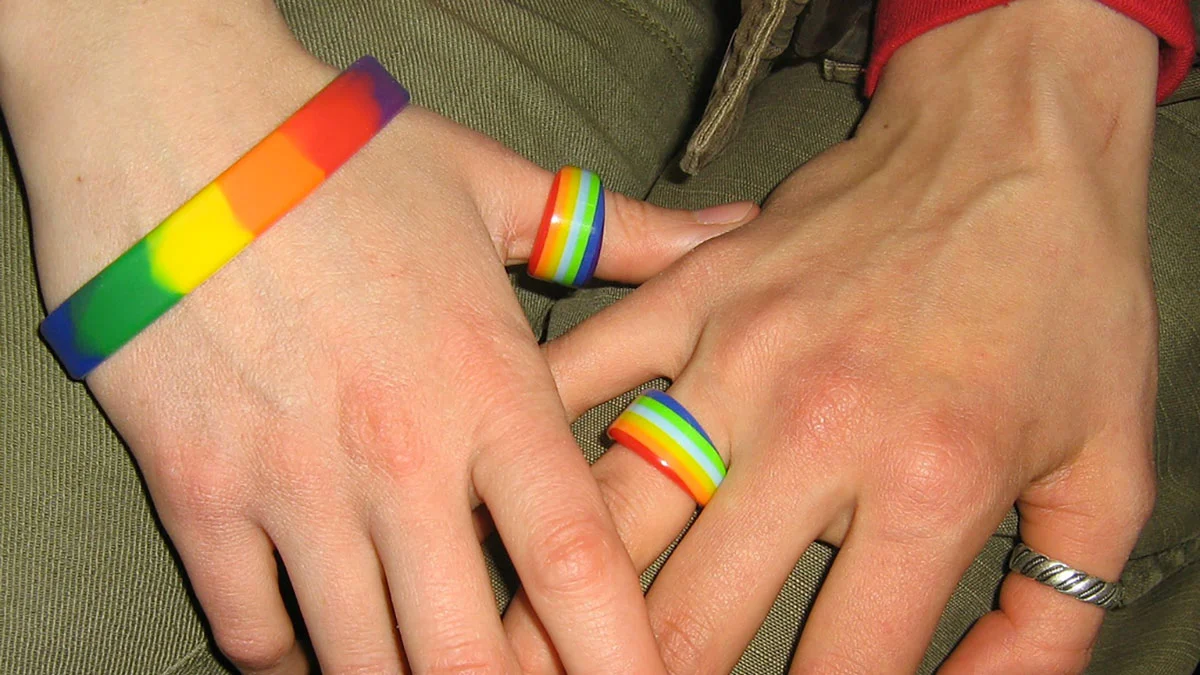
Nepal: The Court Recognises Same-Sex Spouse
Human Rights Watch announced today that the Nepali Supreme Court has ordered the government to accept the same-sex overseas spouse of a Nepali citizen.
Additionally, the court ordered the government to quickly take into account a 2015 court-ordered report that called for more widespread acceptance of same-sex relationships. The court held that failing to recognise same-sex spouses breaches Nepal’s constitution and its international human rights commitments, building on rulings from 2007 and 2017 that recognised the rights of lesbian, gay, bisexual, and transgender (LGBT) individuals.
Kyle Knight, senior LGBT rights researcher at Human Rights Watch, said that the Supreme Court «has once more highlighted the government’s slow implementation of court orders to recognise same-sex relationships». «With a concrete policy change, the government of Nepal needs to live up to its international reputation as a leader in LGBT rights».
A gay couple, Adheep Pokhrel and Tobias Volz, filed the complaint against the Ministry of Home Affairs’ Department of Immigration. Pokhrel is a citizen of Nepal, and Volz is a citizen of Germany. 2018 saw the couple’s legal marriage in Germany. In July 2022, they sought for Volz to receive a non-tourist visa, granting him the same rights to dwell in Nepal as a married heterosexual spouse in the same situation. Because the application form reads «husband» and «wife» and does not recognise two husbands, Nepali authorities denied the request.
The Nepali government rejected Pokhrel and Volz’s desire to register their marriage in Germany. In August 2022, they reapplied for Volz’s non-tourist visa and included the Supreme Court’s decision in Suman Panta v. Ministry of Home Affairs, Department of Immigration, et al. (2017) as proof of the court’s prior orders granting non-tourist visas to foreign same-sex spouses. However, the application was once more rejected by the authorities.
When the American spouse’s application for a non-tourist visa was rejected in 2017, a lesbian couple, Suman Panta of Nepal and Leslie Luin Melnik of the United States, took their case to the Supreme Court. According to the court’s decision, «[I]f a foreign national claiming to be married to a Nepali citizen submits a marriage registration certificate and the Nepali citizen confirms the marriage in their visa application, then the issuance of visa to the foreign national cannot be denied». The court then ordered the government to issue the visa.
Both Pokhrel and Volz’s case and that case heavily referenced earlier Supreme Court rulings, including the seminal case of Sunil Babu Pant et al. v. Nepal. In 2007, the Nepalese Supreme Court ordered the government to set up a commission to research same-sex relationship recognition legislation all over the world in response to a plea from four LGBT campaigners, among them Sunil Babu Pant.
«[W]e hold that it is an inherent right of an adult to have marital relations with another adult with her/his free consent and in accordance with her/his will», the justices stated in their ruling. From the perspectives of the rights and interests of the parties involved as well as those of society, the family, and everyone else, same-sex marriage should be considered.
The 2015 publication of the court-mandated committee report’s recommendations stated that «the Government of Nepal should remove the legal provision that marriage can only occur between a man and a woman and that it embrace the norm that a marriage can occur between two persons, and to grant legal recognition to same-sex marriage on the basis of the principle of equality».
Now, in Pokhrel and Volz’s case, the justices instructed the Immigration Department to once more issue the foreign spouse a non-tourist visa and wrote: «Given this background, it appears that same-sex marriage should be considered a subject that is envisioned by the constitution and in accordance with the Constitution of Nepal, the decisions made by this Court, the report by the committee formed as per this Court’s order, and the human rights treaties ratified».
According to Human Rights Watch, Nepal’s government should live up to its reputation as an advocate for LGBT rights by putting out laws to uphold those rights. A transgender woman seeking to be legally recognised as a woman, Rukshana Kapali, has filed a lawsuit in the Supreme Court’s current docket regarding LGBT rights.
«It has been 16 years since the Supreme Court ordered a government committee to study the issue of recognizing same-sex relationships and eight years since that committee told the government to take concrete and comprehensive action to recognize same sex relationships», Knight said. «The government should urgently examine the committee report and the court’s comprehensive analysis of legal changes that would afford same-sex couples in Nepal their equal rights».







